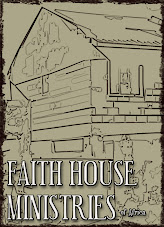 From October 22 through November 12,2007, Agnes Nyambura and Damaris Njoroge will take eighteen exams covering everything they have learned during their years in high school, to complete their work in Danana Girls Secondary School and the Kenyan national exams. Reaching this huge milestone has been something of a miracle for these two girls, a dream come true but never really believed.
From October 22 through November 12,2007, Agnes Nyambura and Damaris Njoroge will take eighteen exams covering everything they have learned during their years in high school, to complete their work in Danana Girls Secondary School and the Kenyan national exams. Reaching this huge milestone has been something of a miracle for these two girls, a dream come true but never really believed.While they were students at Rafiki Girls' Centre, the dream began to gain substance,
 but the process has not been easy.
but the process has not been easy.Damaris grew up in the crowded "suburbs" on the outskirts of Nairobi. She is the oldest of eight living children-- two siblings died at birth or in childhood. Damaris has been a stabilizer in her family. Her home is one room or maybe two, in a compound shared with other families around a common courtyard. Private spaces where a growing young girl could study and learn and develop are non-existent. And yet Damaris did well in primary school, and was eager to go on. One of the most crushing blows of her young life came the day she was told by her mother that there was no money for secondary school. Secondary schools in Kenya are not free-- even public schools charge school fees which are prohibitive to a family struggling just to feed the children. Damaris began to search for other ways to continue her education and found Rafiki, which was a pre-vocational program in her town of Mwiki. Training in Rafiki and meeting American missionaries ignited in Damaris a desire to learn more English and so she struck a deal with her aunt: she would work as a house-girl in exchange for money to pay school fees to take classes each afternoon. What began as classes in English expanded into a high school program in a small private school in Mwiki. Damaris' schedule was not easy: she did chores in the early morning for her aunt, then attended classes at Rafiki, then went to classes at Mwiki Mixed Secondary School in the afternoons, then went to her aunt's house to cook and clean until late, and then grabbed a few hours of study before some moments of sleep. And yet, she remained at the top of her small secondary class through Form 1 and Form 2. As graduation from Rafiki neared, the big question loomed, "What would she do next?"

Agnes grew up in a tiny village clinging to the steep foothills across a valley from Mount Kenya, the third of four children. Until Agnes was eleven years old she was raised by her grandmother, her mother living in the town of Nyeri, not present in the lives of her children. Agnes' primary school years were broken by blocks of time when her grandmother, needing help in the shamba (vegetable garden), had the children miss school to work. No one expected Agnes to do well on her KCPE exams at the end of primary school, but she surprised herself and her family with marks that would take her to a good secondary, except that her family was not willing or able to provide school fees. Angry at the lack of family support, Agnes left home when she was fourteen, taking a succession of house-girl jobs, always searching for the path that would take her to school. Before she found that path to school, Agnes found the Lord whose hand was on her, who would personally take her on her next steps. After introducing her to the living God, her boss introduced her to Rafiki. Soon she began a schedule similar to Damaris: matatu (bus) for an hour each morning, studying on the way, Rafiki during the day, late afternoon classes, matatu home, using travel time as study time, then work for her employers until time for sleep. And she also did well in class. As time for graduation from Rafiki neared she was asked what she would do next: "I don't know. . . maybe I will have to go home."
Both girls longed to continue their education in a real boarding school, where learning was the focus, but they could see no way. Prayers were offered, "What's next, Lord?" . . . "Where?" . . . "By what means?" . . . And the Lord drew attention to a small inheritance in a trust department in the US and whispered, "Use this . . ." With the Lord's gentle pressure, and with the kind acceptance by Anna Ndonye, founder of Danana Girls' Secondary School, the education component of Faith House Ministries began.


